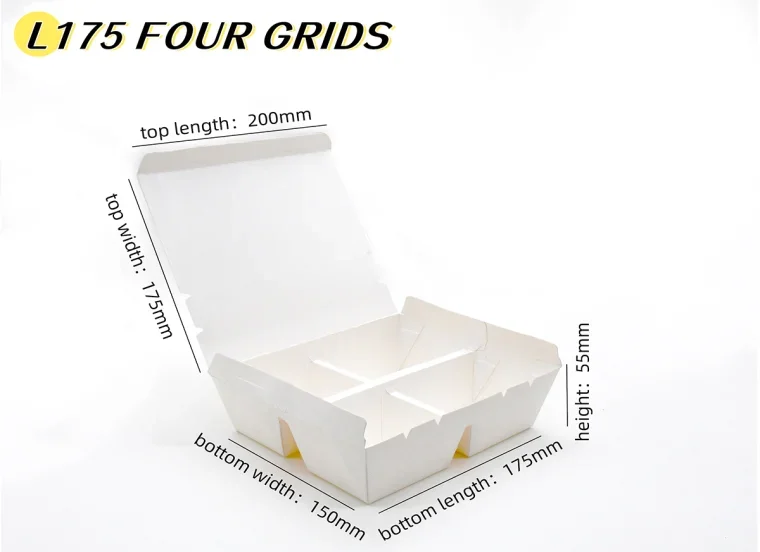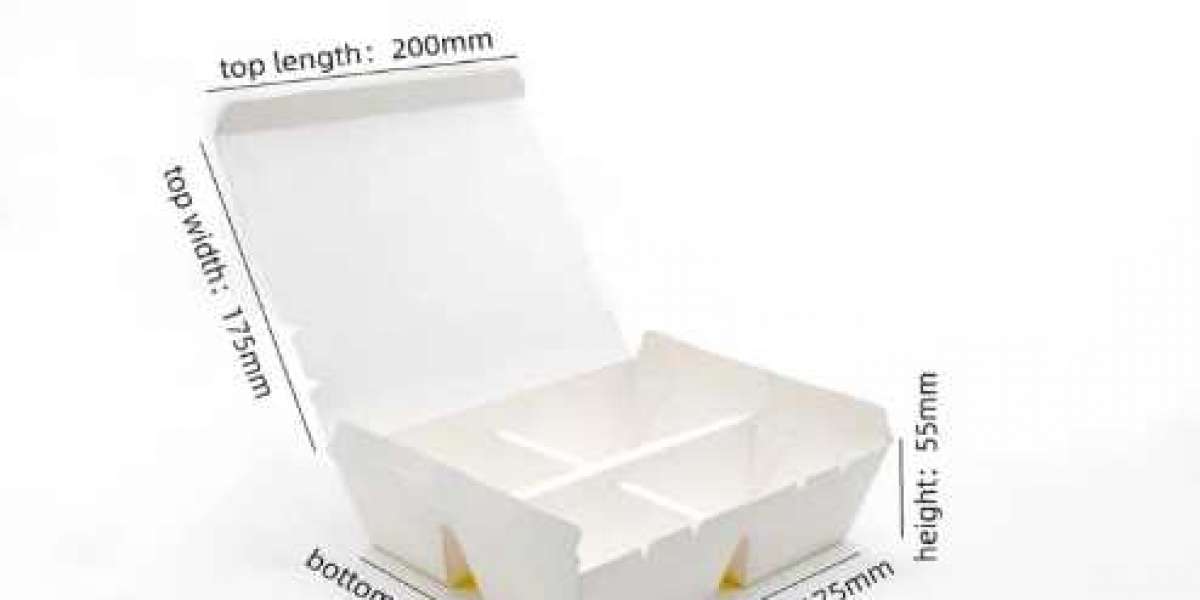As sustainability becomes a global priority, eco-friendly materials are reshaping the manufacturing industry. Businesses and consumers alike are increasingly seeking products that minimize environmental impact while delivering functionality and quality. Eco-friendly materials manufacturing plays a crucial role in this shift by offering innovative, sustainable alternatives to traditional materials.
A leader in this space, Ruihesheng Paper Products is dedicated to creating eco-friendly paper-based solutions for food and beverage packaging. By focusing on biodegradable, recyclable, and compostable materials, Ruihesheng contributes to reducing plastic waste and promoting a greener future.
In this article, we’ll explore the benefits, applications, and future trends in eco-friendly materials manufacturing, highlighting how companies like Ruihesheng are driving the shift toward sustainability.

Benefits of Eco-Friendly Materials Manufacturing
Eco-friendly materials manufacturing provides several key advantages, including environmental, economic, and social benefits:
Reducing Environmental Impact
Less Pollution: Eco-friendly materials are designed to minimize air, water, and land pollution. For example, Ruihesheng’s paper packaging solutions reduce the reliance on single-use plastics, which often end up in oceans and landfills.
Biodegradability and Compostability: Unlike traditional plastics, many eco-friendly materials decompose naturally, reducing waste and promoting healthier ecosystems.
Conserving Natural Resources
By using sustainable raw materials such as recycled paper, bamboo, or plant-based fibers, eco-friendly manufacturing conserves finite resources like petroleum (used in plastic production) and forests.
Ruihesheng’s paper products leverage renewable sources, helping to reduce deforestation and resource depletion.
Economic Efficiency
Eco-friendly production methods can lead to cost savings over time by reducing energy consumption, water usage, and waste generation. Additionally, many consumers are willing to pay a premium for sustainable products, boosting market demand.
Improved Brand Reputation
Companies that embrace eco-friendly manufacturing practices often enjoy enhanced brand loyalty and positive public perception, as sustainability becomes a key purchasing consideration for many consumers.
Applications of Eco-Friendly Materials
Eco-friendly materials have diverse applications across various industries. Ruihesheng’s paper-based packaging solutions are a prime example of how sustainability can be seamlessly integrated into everyday products:
Food and Beverage Packaging
Ruihesheng specializes in eco-friendly paper products for the food and beverage sector, including compostable cups, biodegradable takeout containers, paper straws, and sandwich wraps. These products reduce plastic waste while maintaining food safety and convenience.
Retail and E-Commerce Packaging
Sustainable materials, such as recycled cardboard and kraft paper, are increasingly used for packaging in retail and e-commerce to reduce excess waste and enhance recyclability.
Consumer Goods
Eco-friendly materials are also found in items like reusable bags, biodegradable cutlery, and plant-based packaging films, which align with the growing zero-waste movement.
Industrial Applications
Beyond consumer products, eco-friendly materials are making their way into construction, automotive, and electronics manufacturing, offering lightweight, durable, and sustainable alternatives to traditional components.
Future Trends in Eco-Friendly Materials Manufacturing
The future of eco-friendly materials manufacturing is driven by technological advancements, regulatory changes, and shifting consumer preferences. Key trends shaping the industry include:
Biodegradable and Compostable Innovations
Research and development in biodegradable and compostable materials continue to accelerate, with new plant-based alternatives being developed for packaging, textiles, and more. Ruihesheng’s paper products exemplify how natural materials can be engineered for high performance and minimal environmental impact.
Circular Economy Practices
The transition from a linear "take-make-dispose" model to a circular economy is gaining traction. In a circular system, products are designed for reuse, recycling, and regeneration, reducing waste and maximizing resource efficiency.
Increased Use of Renewable Resources
Renewable materials like bamboo, hemp, and agricultural waste are becoming more prevalent in eco-friendly manufacturing, offering sustainable alternatives to non-renewable resources.
Government Regulations and Green Certifications
Many governments are introducing stricter regulations to curb plastic pollution and promote sustainable packaging. Additionally, certifications like FSC (Forest Stewardship Council) and compostability labels help consumers identify genuinely eco-friendly products.
Consumer Demand for Transparency and Sustainability
As awareness of environmental issues grows, consumers are demanding greater transparency from manufacturers regarding sourcing, production processes, and product lifecycle impacts. Companies like Ruihesheng are responding by openly communicating their sustainability initiatives and eco-friendly product offerings.
Why Ruihesheng Paper Products Stands Out
Ruihesheng Paper Products has established itself as a leader in eco-friendly packaging solutions by focusing on innovation, sustainability, and quality. By offering biodegradable, compostable, and recyclable paper products, Ruihesheng not only reduces environmental impact but also meets the growing demand for green alternatives in the food and beverage industry.
With a commitment to continuous improvement, Ruihesheng is poised to remain at the forefront of eco-friendly materials manufacturing, contributing to a cleaner, greener, and more sustainable world.
Conclusion
Eco-friendly materials manufacturing is transforming industries by offering sustainable alternatives that reduce environmental impact while delivering economic and social benefits. Whether it’s food packaging, retail products, or industrial applications, eco-friendly materials are the key to a more sustainable future.
For businesses looking to embrace sustainability, partnering with innovative manufacturers like Ruihesheng Paper Products can make all the difference. By choosing eco-friendly packaging solutions, you can reduce your environmental footprint, enhance your brand’s reputation, and contribute to a healthier planet.








